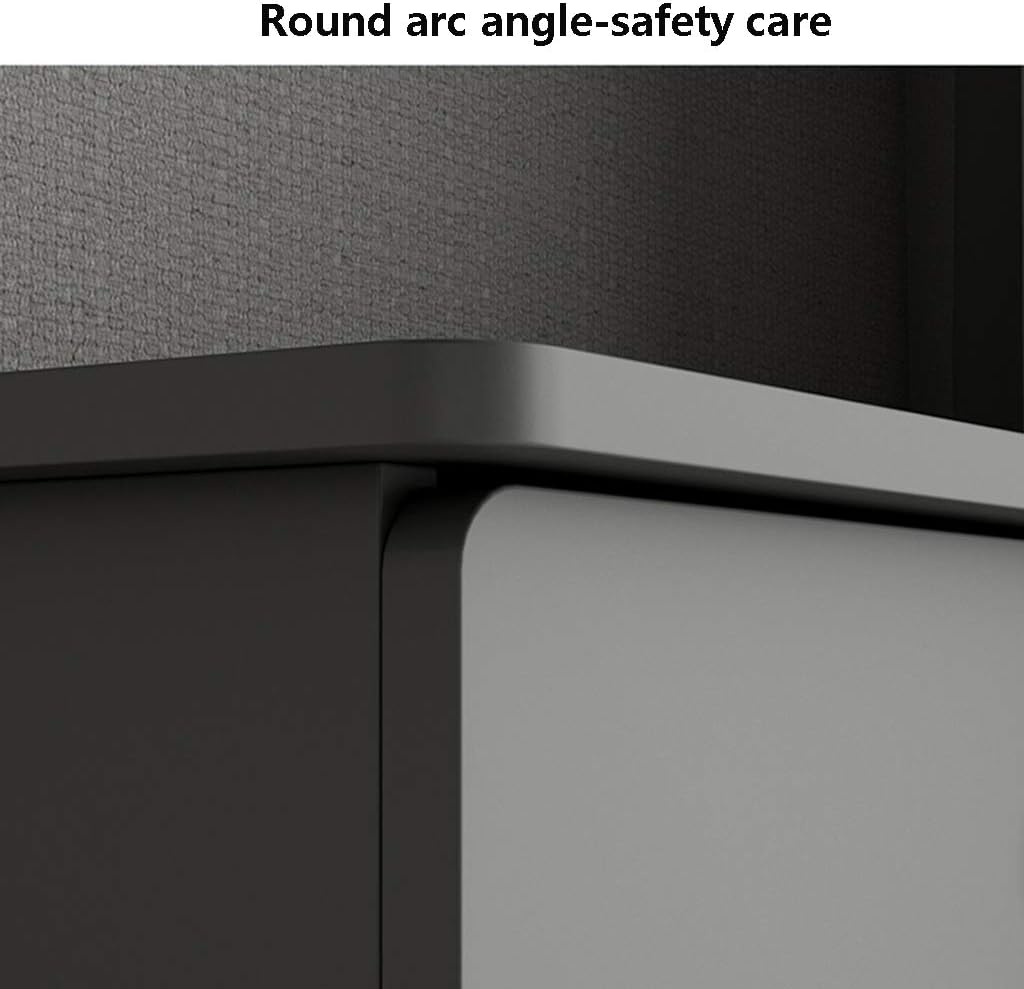
マイストア
変更
お店で受け取る
(送料無料)
配送する
納期目安:
07月04日頃のお届け予定です。
決済方法が、クレジット、代金引換の場合に限ります。その他の決済方法の場合はこちらをご確認ください。
※土・日・祝日の注文の場合や在庫状況によって、商品のお届けにお時間をいただく場合がございます。
化粧台セット バニティデスク 大型ドレッシングテーブル 収納引き出し4つ付き フリップミラー パッド入りスツール ベッドルーム ホーの詳細情報
ミニマリストでシックでしっかりしたドレッシングテーブルは、あなた自身の特別なスペースとユニークなパーソナルセッティングで自分を台無しにすることができます。
毎日のメイクやモデリングに十分なスペースを提供し、実用的な収納ソリューション、多機能収納グリッドは化粧品からジュエリーまであらゆるアイテムを収納でき、心の中で好きなものを簡単に見つけることができます。
エレガントなデザイン、ユニークなデザイン、絶妙なディテール。
モダンな外観は長期間の試練に耐え、どんなモダンなインテリアデザインにも適しています。
お部屋の美観において中心的な役割を果たしましょう。
ファッションとエレガンスを兼ね備えた美しいドレッサーは、どんなインテリアにもマッチします。
寝室、バスルーム、廊下、その他のドレッシングエリアに非常に適しています。
商品情報:
名称:バニティデスク
素材:厚板
カラー:ホワイト
サイズ:100×48×75cm
重量:45kg
ヒント:
1.
※ご使用前に部品が無傷であることをご確認ください。
2.
製品の色はカメラの角度や光の影響を受けますので、実際の状況に応じて判断する必要があります。
3.
製品は手作業で測定されているため、1~2cmの誤差が生じる場合があります。受け取った製品の実際のサイズを参照してください。
4.
購入についてご質問がある場合は、時間内にメールでお問い合わせください。
最善を尽くします。
【おしゃれで上品なデザイン】飽きのこない色使いで、落ち着きと洗練さを感じさせるドレッシングテーブルです。
ドレッシングテーブルのエレガントな脚の輪郭により、毎回立つのがより便利になります。
自宅、職場、ヘアサロン、スタジオメイクに非常に適しています。
休暇中の奥様、娘さん、ガールフレンドへの理想的なギフトです。
【白い明るい表面天板】非常に美しい硬い表面と無垢材の足、頑丈で耐久性があります。
また、おしゃれな化粧台や化粧台として寝室の装飾効果を高めることができます。
【高品質素材】引き出しは無垢材、E1
MDF、つや消しステンレススチールフレーム、高精細水銀防爆ミラー、無垢材の化粧台脚で作られています。
【たっぷり収納スペース】4つの引き出しと100×48cmの大きなテーブルトップを備えた化粧台は、すべての化粧品やジュエリーに最適です。
デスクには収納用の大きな引き出しが2つあり、小さなものをたくさん置くことができ、デスクを清潔に整頓できます。
【マジックミラー】単なる化粧台ではありません。
鏡を覆うと、化粧台はライティングデスクとして使用できます。
センターミラー付きの折りたたみミラーは、より広い視野を提供し、メイクのあらゆる面と複数の角度に便利です。
もっと見る
【おしゃれで上品なデザイン】飽きのこない色使いで、落ち着きと洗練さを感じさせるドレッシングテーブルです。
ドレッシングテーブルのエレガントな脚の輪郭により、毎回立つのがより便利になります。
自宅、職場、ヘアサロン、スタジオメイクに非常に適しています。
休暇中の奥様、娘さん、ガールフレンドへの理想的なギフトです。
【白い明るい表面天板】非常に美しい硬い表面と無垢材の足、頑丈で耐久性があります。
また、おしゃれな化粧台や化粧台として寝室の装飾効果を高めることができます。
【高品質素材】引き出しは無垢材、E1
MDF、つや消しステンレススチールフレーム、高精細水銀防爆ミラー、無垢材の化粧台脚で作られています。
【たっぷり収納スペース】4つの引き出しと100×48cmの大きなテーブルトップを備えた化粧台は、すべての化粧品やジュエリーに最適です。
デスクには収納用の大きな引き出しが2つあり、小さなものをたくさん置くことができ、デスクを清潔に整頓できます。
【マジックミラー】単なる化粧台ではありません。
鏡を覆うと、化粧台はライティングデスクとして使用できます。
センターミラー付きの折りたたみミラーは、より広い視野を提供し、メイクのあらゆる面と複数の角度に便利です。
毎日のメイクやモデリングに十分なスペースを提供し、実用的な収納ソリューション、多機能収納グリッドは化粧品からジュエリーまであらゆるアイテムを収納でき、心の中で好きなものを簡単に見つけることができます。
エレガントなデザイン、ユニークなデザイン、絶妙なディテール。
モダンな外観は長期間の試練に耐え、どんなモダンなインテリアデザインにも適しています。
お部屋の美観において中心的な役割を果たしましょう。
ファッションとエレガンスを兼ね備えた美しいドレッサーは、どんなインテリアにもマッチします。
寝室、バスルーム、廊下、その他のドレッシングエリアに非常に適しています。
商品情報:
名称:バニティデスク
素材:厚板
カラー:ホワイト
サイズ:100×48×75cm
重量:45kg
ヒント:
1.
※ご使用前に部品が無傷であることをご確認ください。
2.
製品の色はカメラの角度や光の影響を受けますので、実際の状況に応じて判断する必要があります。
3.
製品は手作業で測定されているため、1~2cmの誤差が生じる場合があります。受け取った製品の実際のサイズを参照してください。
4.
購入についてご質問がある場合は、時間内にメールでお問い合わせください。
最善を尽くします。
【おしゃれで上品なデザイン】飽きのこない色使いで、落ち着きと洗練さを感じさせるドレッシングテーブルです。
ドレッシングテーブルのエレガントな脚の輪郭により、毎回立つのがより便利になります。
自宅、職場、ヘアサロン、スタジオメイクに非常に適しています。
休暇中の奥様、娘さん、ガールフレンドへの理想的なギフトです。
【白い明るい表面天板】非常に美しい硬い表面と無垢材の足、頑丈で耐久性があります。
また、おしゃれな化粧台や化粧台として寝室の装飾効果を高めることができます。
【高品質素材】引き出しは無垢材、E1
MDF、つや消しステンレススチールフレーム、高精細水銀防爆ミラー、無垢材の化粧台脚で作られています。
【たっぷり収納スペース】4つの引き出しと100×48cmの大きなテーブルトップを備えた化粧台は、すべての化粧品やジュエリーに最適です。
デスクには収納用の大きな引き出しが2つあり、小さなものをたくさん置くことができ、デスクを清潔に整頓できます。
【マジックミラー】単なる化粧台ではありません。
鏡を覆うと、化粧台はライティングデスクとして使用できます。
センターミラー付きの折りたたみミラーは、より広い視野を提供し、メイクのあらゆる面と複数の角度に便利です。
もっと見る
【おしゃれで上品なデザイン】飽きのこない色使いで、落ち着きと洗練さを感じさせるドレッシングテーブルです。
ドレッシングテーブルのエレガントな脚の輪郭により、毎回立つのがより便利になります。
自宅、職場、ヘアサロン、スタジオメイクに非常に適しています。
休暇中の奥様、娘さん、ガールフレンドへの理想的なギフトです。
【白い明るい表面天板】非常に美しい硬い表面と無垢材の足、頑丈で耐久性があります。
また、おしゃれな化粧台や化粧台として寝室の装飾効果を高めることができます。
【高品質素材】引き出しは無垢材、E1
MDF、つや消しステンレススチールフレーム、高精細水銀防爆ミラー、無垢材の化粧台脚で作られています。
【たっぷり収納スペース】4つの引き出しと100×48cmの大きなテーブルトップを備えた化粧台は、すべての化粧品やジュエリーに最適です。
デスクには収納用の大きな引き出しが2つあり、小さなものをたくさん置くことができ、デスクを清潔に整頓できます。
【マジックミラー】単なる化粧台ではありません。
鏡を覆うと、化粧台はライティングデスクとして使用できます。
センターミラー付きの折りたたみミラーは、より広い視野を提供し、メイクのあらゆる面と複数の角度に便利です。
ベストセラーランキングです
近くの売り場の商品
カスタマーレビュー
オススメ度 4.6点
現在、331件のレビューが投稿されています。





















